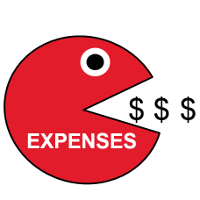Nearly one year has passed since Singapore Saving Bonds were introduced with much fanfare. Now things have quieted down somewhat. How has the scheme fared? Let’s look at some numbers together!
How to give yourself a raise
Many of my friends are complaining this year: some got only tiny salary increases and for others their salaries even stayed flat. Gone are the days when companies in Singapore had to fiercely compete for good people and nowadays firms embark on cost cutting and optimization while cutting employee benefits. The only solution: we need to give ourselves a raise.
The market is dropping. What to do?
Asian stock markets had a tough January so far: Indexes around the region have been falling and our Singaporean Straits Times Index is below 2,600 points at the moment. Now we should all panic and run around with our heads on fire, right?
Reader question: does it make sense to invest in the POSB Invest Saver Plan?
Today I got an interesting question by reader Kah in response to my article comparing ETFs tracking the Singapore Straits Times Index. Kah asked me whether it makes sense to POSB Invest Saver Plan and how fees matter in this case. Read on for the full analysis!
The cost trap: why you should not always trust unit trusts
Recently I read a lot about unit trusts, which most of the time are actively managed funds with high expenses. They are well loved by financial advisers trying to earn some commissions, but I would like to explain why you should be very careful when evaluating unit trusts.
Which fund is the best choice for tracking the Straits Times Index (STI)?
Recently I decided to add an exchange traded fund (ETF) tracking the Straits Times Index (STI) to my portfolio. My reasons: I more or less believe in the future of Singapore as a great place to do business and I have too many ETFs in Hong Kong Dollars already.
Which ETF is the best choice for tracking the STI?
Why it is a bad idea to invest in some foreign dividend stocks from Singapore (withholding taxes)
Dividends are tax free in Singapore? Yes they are, but there are still bad surprises waiting for investors who want to buy some foreign dividend stocks and funds listed on stock exchanges abroad. Let me explain my silly mistakes and hopefully prevent some of you to fall into the same traps.
Let’s do this! Obligatory first post
How to invest your money in Singapore?
I was asking myself this some time back after having decided not to spend all my money on fun & frivolous activities. My first steps were stupid to say the least and I made many silly mistakes including: trying to pick hot stocks to buy, trying to time to market and so on. This is when I realized some more research was in order and I came up with some leading principles which hopefully will work better in the long run.
My ambitious goal: be financially independent by 2027. What does financially independent mean? Passive income covering my costs.
This blog is here to share some of the things I learned and to prevent you from making the very same mistakes I did. Furthermore I have published my goals and a page to track my portfolio.
So let’s jump right in with my small getting started investing in Singapore guide:
- How to get started investing in Singapore in 5 simple steps?
- How to open a trading account in Singapore?
- Introduction to exchange traded funds (ETFs) for Singaporean investors
Most of all: this is an experiment. I have no idea how it will go. So let’s give it a shot and let’s have fun!






